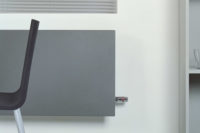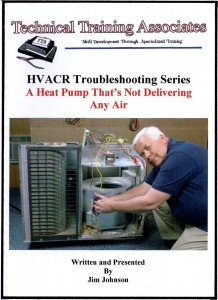U.S. Boiler Company recently introduced an ambient air-to-water hydronic heat pump for residential customers looking to upgrade their hydronic systems with the most efficient electric option available.
The new heat pump has a 5-ton capacity (rated at 60 MBH) and provides reliable space heating with outdoor temperatures as low as -13°F. Offering a COP of up to 3.95 (395% efficiency) and delivering supply temperatures of up to 140°F, the Ambient Heat Pump offers significant energy savings over conventional electric heating systems.
Installation is simple, whether the monoblock heat pump is installed in a new residence or is retrofitted into an existing hydronic system. It’s also easy to install as a stand-alone heat source or in dual-fuel applications.
The heat pump uses environmentally friendly R-32 refrigerant for high efficiency and low global warming potential. Its DC inverter Enhanced Vapor Injection (EVI) technology is extremely quiet, with operating sound levels as low as 39 decibels at two-foot distance (quieter than most refrigerators).
The Ambient Heat Pump is available with an optional dual-fuel controller for applications in extremely cold climates. The controller, as part of a kit, allows the installer to seamlessly integrate the heat pump with a new or existing fossil fuel or electric boiler. No additional venting or re-sizing of existing hydronic piping is necessary.
The new system is available as a stand-alone unit, or as part of two different packages, depending on whether the heat pump will be the only source of hydronic heat in the home or in tandem with a boiler.
Both packages include a 5.7-inch touchscreen controller which is mounted inside the home. Other packaged accessories include a 40-gallon buffer tank with backup heating elements, a Taco 0013 circulator, circulator flange kit, flat plate heat exchanger, pressure relief valve, drain valve, and relays. The dual fuel package also includes the dual fuel controller.
U.S. Boiler Company has launched an Electrification Program to assist homeowners and contractors in adopting air-to-water heat pumps.










